Southwest Michigan field crops update — April 25, 2024
Though cool, several days of little to no precipitation allowed for soybean, some corn and potato planting.

Weather
An airmass from Canada resulted in unusually cold and dry conditions late this week, which led to frost throughout Michigan. Southwest Michigan had some of the mildest of these freezing temperatures, largely due to higher humidity than the rest of the state. A slight wind also helped reduce the severity of frost events in parts of southwest Michigan. Soil temperatures fell a little with the cold from this week, but they remained relatively stable and are expected to warm quickly with the higher temperatures headed our way next week.
After one more night of frost risk, a warm front will come in and bring significant precipitation and warmer temperatures late Friday, April 26, and into Saturday. Another weather system will arrive Sunday afternoon into Monday with more significant precipitation, leading to higher than normal temperatures for the next week. Minimum temperatures are not expected to drop out of the 60s. As such, degree days will accumulate quickly, and the soil is expected to dry quickly with a higher evaporation rate. The long-range seasonal outlook predicts that the whole season will be warmer than normal.
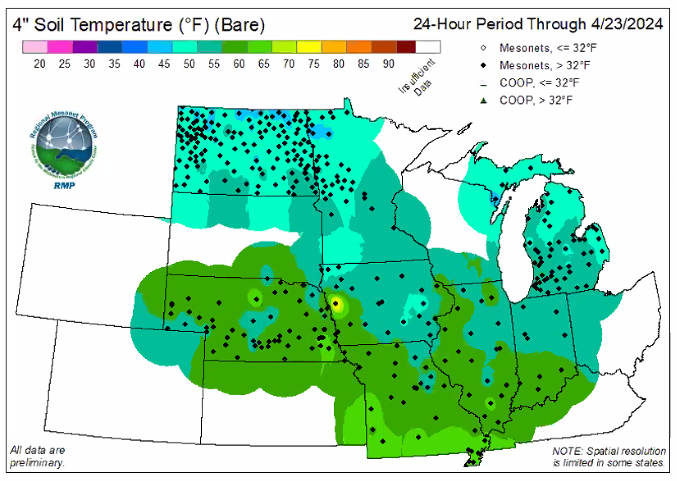
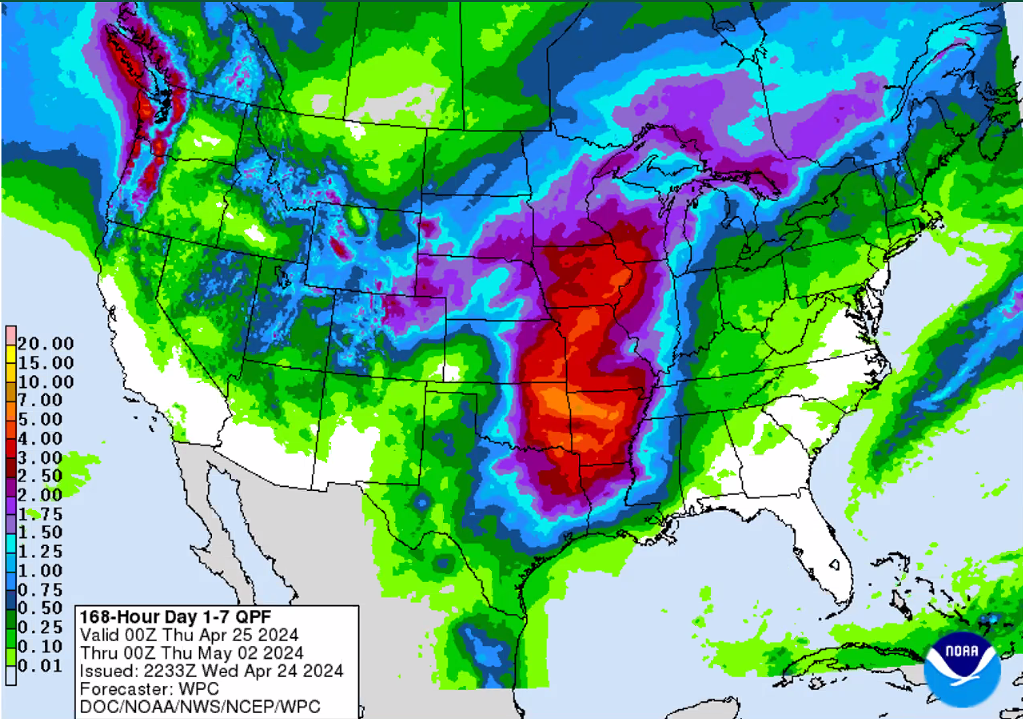
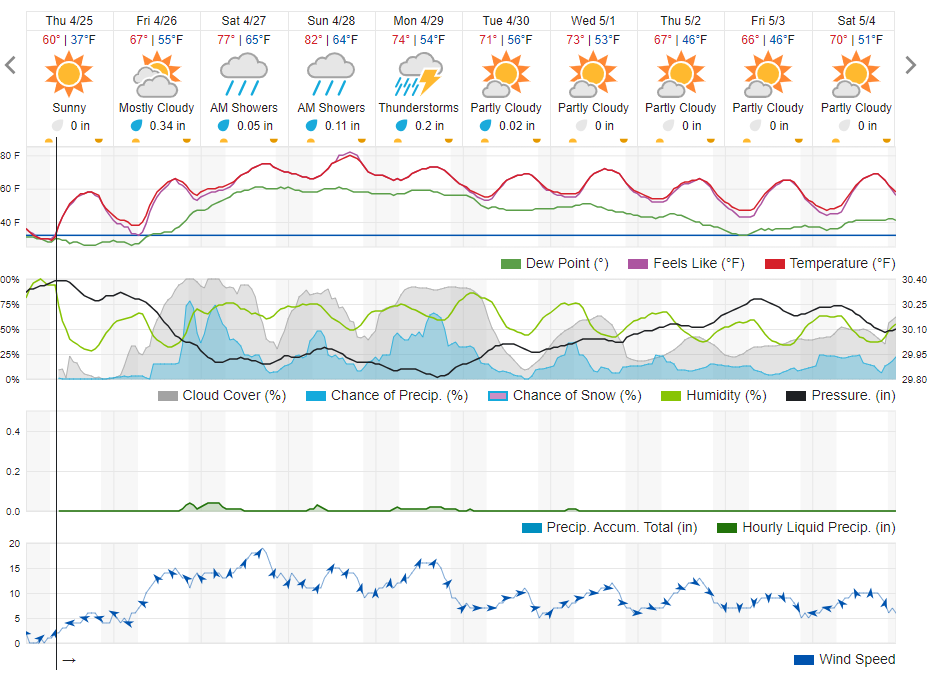
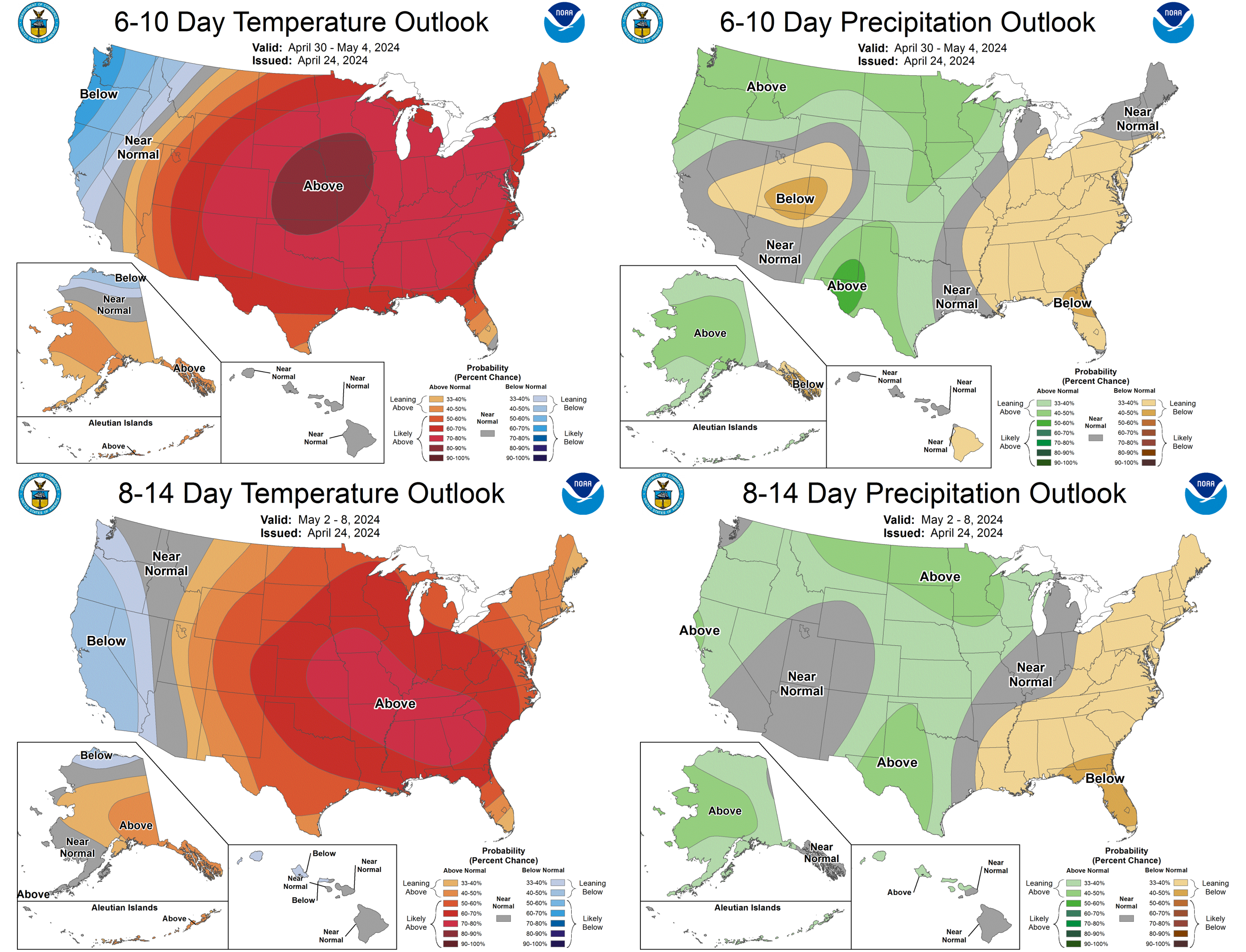
Crops and pests
Soybean and a little bit of corn planting started across southwest Michigan on the drier fields early this week and is expected to continue as much as possible over the weekend and into next week. Because of the incoming warm temperatures, there is low likelihood of imbibitional chilling affecting seeds. Warm temperatures will also increase the rate of evaporation, so the significant precipitation over the weekend is not expected to impede planting too much. Fertilizer spreading and cultivation were also ongoing this past week. Most cover crop burndown took place the previous week, but any herbicide applications that occurred this week with the cooler temperatures are expected to have reduced efficacy as opposed to the prior week.
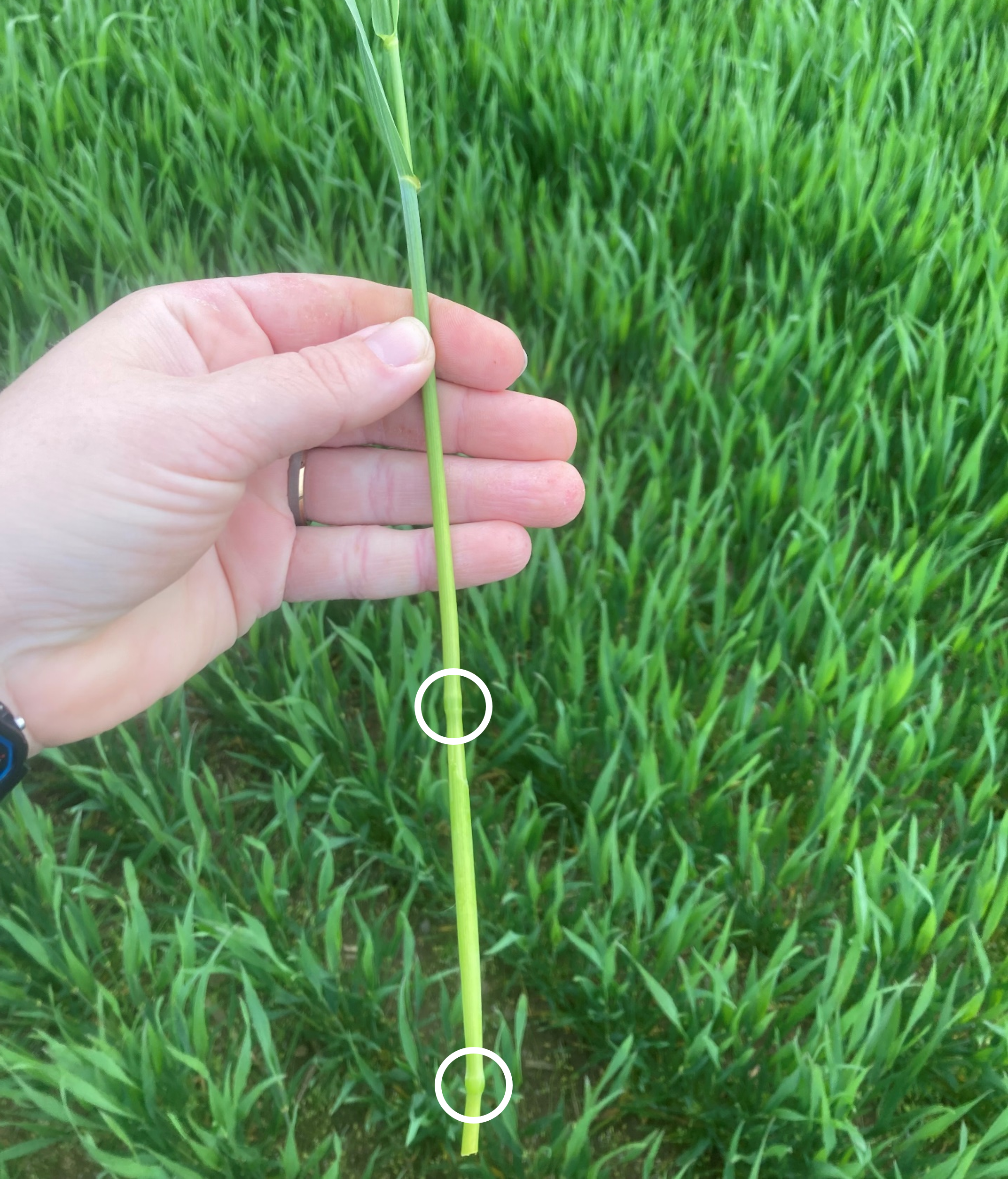
Winter wheat is at Feekes 6 and 7 with one to two nodes above ground. Cold temperatures had little to no effect on wheat progression in St. Joseph County but slowed down wheat progression in Berrien County. This opens a window for last-minute herbicide or nitrogen applications. Cold temperatures impact herbicide applications and efficacy. A good rule of thumb is to watch for three consecutive days of 50 degrees Fahrenheit average temperatures and then apply on the second of those three days.
At jointing, the threshold for frost damage is 24 F. While most of southwest Michigan wheat should have been spared from significant frost damage, symptoms will become evident within seven to 10 days. Watch for sterile spikes, silage odor, stem bending and leaf tip burn. Once wheat moves into boot stage, the threshold for frost damage becomes 28 F.
Potato planting continued this week, although the cool temperatures made it more difficult for fields to dry out deeper in the soil profile. Potatoes are estimated to finish the week at about 75% planted.
Black cutworm moths are present in the state. Bucket traps in Berrien (near Berrien Springs) and St. Joseph counties have caught the following:
|
Date |
Berrien 2 |
Centreville 2 |
Sturgis 2 |
|---|---|---|---|
|
4/8 |
0 |
2 |
1 |
|
4/15 |
0 |
12 |
4 |
|
4/22 |
0 |
16 |
3 |
|
Total |
0 |
30 |
8 |
No true armyworm moths were trapped in any of the counties this week.
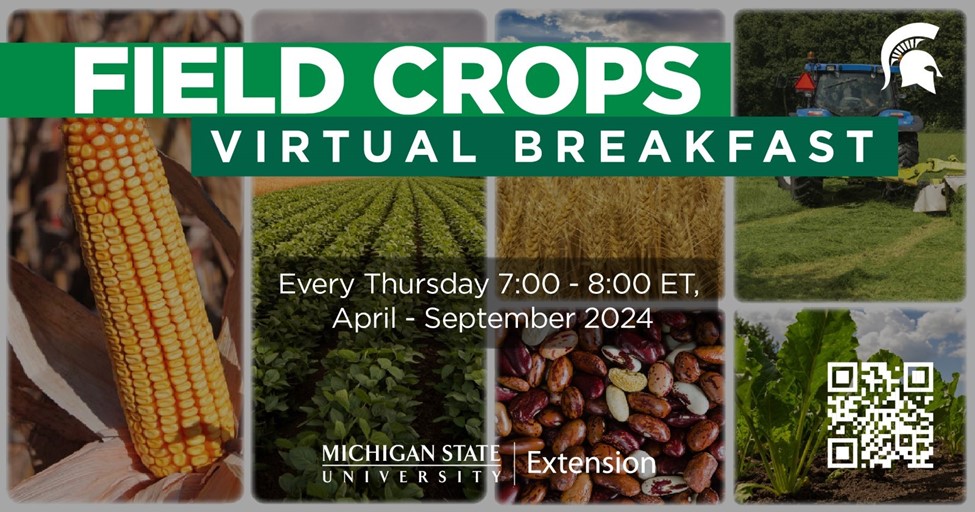
Conservation, presented by Abby Smith with the United States Department of Agriculture’s Natural Resources Conservation Service, was the topic for the Michigan State University Extension Field Crops Virtual Breakfast this week. She talked about soil health and cover crops. When it comes to soil, “We want cake, not pudding,” she says. This refers to the overall look and feel of the soil when it has been crumbled in a hand with some water added. Such a process is used to qualitatively determine how many water stable aggregates are in the soil. Recordings of this and all the Virtual Breakfast meetings are closed-captioned and available at the Field Crops Virtual Breakfast webpage and the MSU Extension field crops team social media platforms: Facebook, Spotify, YouTube, Apple Podcasts and Twitter.



 Print
Print Email
Email